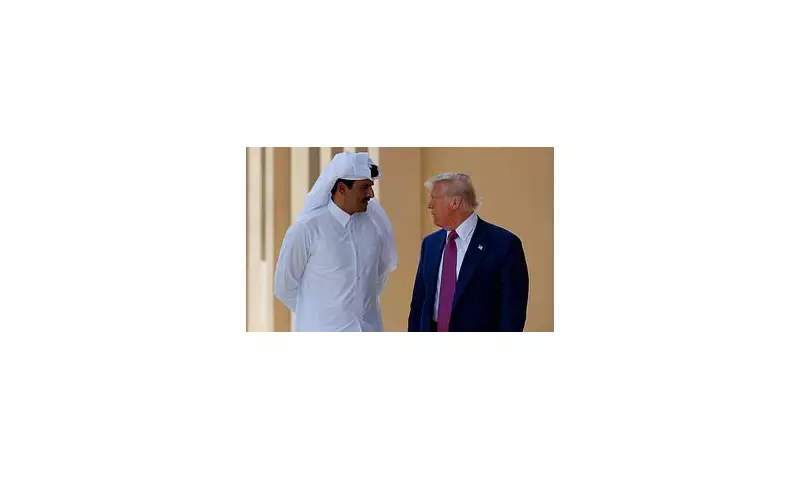
In a groundbreaking diplomatic manoeuvre, Qatar is actively pursuing a formal security guarantee from NATO that would position the Gulf state as a primary Arab ally to Israel within the Middle East's defence architecture. High-level discussions are reportedly advancing, with Doha seeking to cement its strategic role ahead of potential political shifts in Washington.
The Unprecedented Security Proposal
According to diplomatic sources familiar with the negotiations, Qatar aims to become the first Arab nation to secure such a comprehensive defence arrangement with the Western military alliance. This move represents a significant evolution in Middle Eastern security dynamics, potentially creating a new framework for regional stability.
The proposed agreement would see Qatar assuming responsibility for specific security functions currently managed by Israel, effectively making Doha Washington's principal Arab partner in the region. This strategic repositioning comes as Gulf nations assess the implications of a possible return of Donald Trump to the White House.
Trump Factor in Gulf Calculations
Multiple sources indicate that Qatari officials have been conducting discreet talks with NATO representatives throughout the summer, with negotiations gaining momentum as the US presidential election approaches. The timing suggests Gulf states are preparing contingency plans for potential changes in American foreign policy direction.
"This isn't just about immediate security concerns," one insider revealed. "There's a clear recognition that a Trump administration might pursue different priorities in the region, and Qatar wants to establish its position early."
Regional Implications and Israeli Relations
The potential agreement marks a remarkable transformation in Qatar's international standing. From facing a diplomatic blockade by neighbouring Arab states just years ago, Doha now positions itself as an indispensable mediator and security partner.
Key aspects of the proposed arrangement include:
- Formal NATO security guarantees for Qatari territory
- Enhanced intelligence sharing mechanisms
- Joint military training and exercises
- Coordinated regional security initiatives with Israel
This development occurs against the backdrop of ongoing normalisation efforts between Israel and Arab states, suggesting Qatar could play a pivotal role in future regional security architectures.
Strategic Calculations and Future Projections
Analysts suggest that Qatar's initiative reflects broader trends in Gulf security policy, where traditional alliances are being reassessed and new partnerships explored. The NATO dimension adds an unprecedented element to this strategic recalibration.
"What we're witnessing is the emergence of a new Middle East security paradigm," commented a regional security expert. "Qatar appears to be positioning itself as the bridge between Western defence structures and Arab security interests, with Israel as a key component of that equation."
As negotiations continue, observers will be watching for reactions from other regional powers and the incoming US administration, whichever form it takes. The success or failure of Qatar's bold diplomatic initiative could significantly influence Middle Eastern alignment for years to come.





